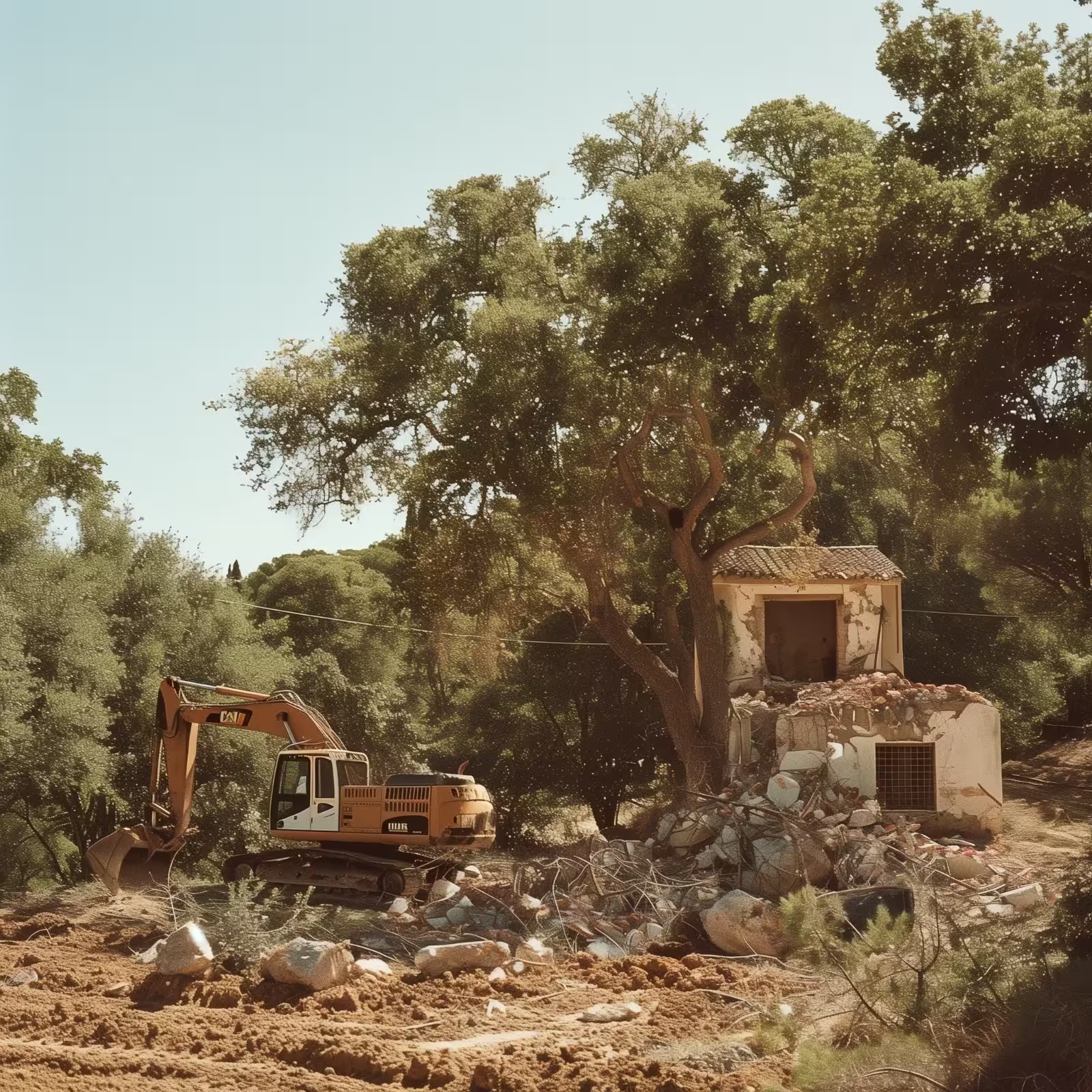The Andalusian Region’s Efforts to Regularize Illegal Properties
The Andalusian region in Spain has a significant problem with illegal properties, with over 300,000 homes built without proper licenses or in violation of urban planning regulations. These properties, often located on undeveloped land, cannot be registered, lack access to basic services, and pose environmental and safety concerns.
What is an Asimilado Fuera de Ordenación (A.F.O.)?
To address this issue, the Andalusian government introduced Decree-Law 3/2019, which established the AFO (Asimilado Fuera de Ordenación) certificate. The AFO is a process that allows the municipal authorities to recognize these irregular constructions and grant them the status of being “assimilated outside of planning regulations”.
Conditions for A.F.O. Designation
The AFO designation applies when:
– The infringement of urban planning regulations has been prescribed, meaning more than 6 years have passed since the violation without the authorities opening a sanctioning procedure.
– The works, constructions, or installations do not encroach on the public domain or its easement zones.
– The works, constructions, or installations are not located within the protection area of a Cultural Interest Property.
– The acts and uses of land subdivisions are not covered under Article 185.2a of the Andalusia Urban Planning Law.
Legal Regime for A.F.O. Properties
– A.F.O. properties can continue to be used for compatible urban uses and economic activities, provided they comply with applicable sectoral regulations.
– Changes of activity are allowed as long as they do not require works or installations beyond those strictly necessary for repair or maintenance.
– No expansion or improvements that consolidate or intensify the use are permitted.
– Only repair and conservation works necessary to maintain safety, habitability, and health conditions can be authorized.
– In some cases, exceptional works may be required to mitigate negative environmental impacts or ensure landscape integration.
Obtaining the AFO Certificate
To obtain the AFO certificate, certain requirements must be met:
– The property must meet minimum health and safety standards, as verified by a competent technician.
– The property must be properly identified and geo-referenced.
– The 6-year statute of limitations for the municipal authorities to take enforcement action must have expired.
– The required fees must be paid to the city council.
Why So Many Illegal Properties in Andalucia
The problem with illegal properties in Andalucia is due to several key reasons:
1. Lax Enforcement and Lack of Oversight:
– Many local town halls have historically granted building permits for properties that were actually in violation of urban planning regulations.
– Some town halls have turned a blind eye to illegal constructions, failing to issue fines or demolition orders.
– This lack of enforcement has allowed the problem of illegal properties to proliferate over decades.
2. Demand for Rural and Coastal Properties:
– There has been high demand from both Spanish and foreign buyers for properties in Andalucia’s rural and coastal areas.
– This demand, combined with lax oversight, has led to widespread illegal construction, often with the complicity of real estate agents and even some lawyers.
3. Complexity of the Legal Framework:
– The laws and regulations around urban planning and property construction in Spain are complex, with different levels of government involved.
– This has created loopholes and inconsistencies that have been exploited for illegal building.
4. Historical Factors:
– In the past, some town halls granted building licenses for properties that were actually in violation of the regional urban plan (PGOU).
– This led to many “legally” built but ultimately illegal properties across Andalucia.
What to Do If You Own an Illegal Property in Andalucia
If you own an illegal property in Andalucia, here is what you should do:
1. Determine if Your Property Qualifies for Regularization:
– The property must be completed and not under 6 years old.
– It cannot be located on protected land or in a flood-risk area or public access area around rivers.
– It must not be subject to ongoing legal proceedings for planning violations.
2. Apply to Have Your Property Regularized:
– The process involves submitting an application to the local town hall, along with required documentation.
– This includes things like a map of the property, proof of ownership, and a declaration that you are aware of any risks like erosion or flooding.
3. Pay the Required Fees and Administrative Costs:
– There are various fees and charges associated with the regularization process that you will need to pay.
– The exact amount will depend on the specifics of your property and the local town hall requirements.
4. Wait for a Decision:
– The law states that the town hall must issue a decision on the regularization application within 6 months but it can take longer.
5. If Approved, You Can Then Apply for Utility Connections:
– With the new “assimilated to out of planning” (AFO) status, you can apply for electricity, water, and other services. This is an important part as many of these properties with existing utility connections are systematically being cut off.
Still need help
If you own a house or are interested in buying land in the Andalusia region, and you have questions about the AFO (Asimilado Fuera de Ordenación) process, please feel free to contact us. As part of our business, obtaining AFOs for our clients is a daily occurrence.
Whether you need assistance with determining if your property qualifies, submitting the necessary documentation, or navigating the administrative requirements, we are here to help.
Don’t hesitate to reach out to us. We understand the complexities of the Spanish property laws and are dedicated to providing our clients with the support they need to regularize their properties and access essential services. Let us put our expertise to work for you and help you navigate the AFO process with confidence.

